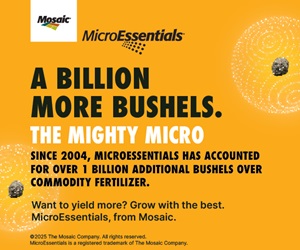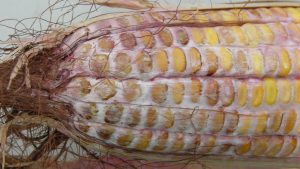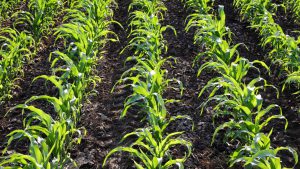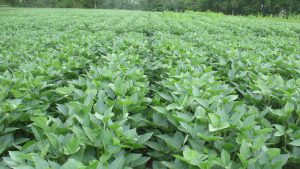The digital revolution is here
WHAT DOES IT MEAN FOR ONTARIO GRAIN FARMERS?

THROUGHOUT THE FARMING community, there is an ongoing discussion of how novel technologies are changing agriculture. According to a University of Waterloo study, 89 per cent of Ontario grain farmers somewhat or strongly agree that we are experiencing a digital agriculture revolution.
But what do these new technologies mean for Ontario grain farmers’ lives and livelihoods?
Following the 2018 harvest, 75 farmers from across Ontario completed an online survey on ‘digital farming’ technologies. In this article, we will take a closer look at key results from this survey and follow-up interviews with farmers. This work was conducted as part of a two-year master’s research project at the University of Waterloo to analyze digital farming’s social and economic impacts.
DIGITAL FARMING ADOPTION
Most farmers utilize digital technologies in their daily lives: 73 per cent of Ontario grain farmers use digital farming, with an average of nine years of experience. The most common examples include smartphones, global positioning systems, precision soil sampling, and geographic information systems.
And enthusiasm is growing. The majority of respondents believe that digital farming has the potential to improve yields and support better decision-making. Also, 82 per cent of respondents believe that these technologies improve farm productivity. Claims of increased yields and decreased inputs are mostly attributed to variable rate and auto-steer equipment.
After using digital farming technologies for two years, one Chatham-Kent farmer says, “I feel that they are really helpful, and they’ve definitely increased our yields, they’ve lowered our costs, and they have reduced our environmental impact.”
However, not all farmers are interested: seven per cent of respondents have no intention of using digital farming in the future. Many are highly skeptical.
“I don’t think you really get any value out of it. I think it’s just something else that somebody is marketing to try and make a profit or make a living out of it,” says one Wellington farmer.
FARMER CONCERNS
Whether or not they adopt, Ontario grain farmers share several concerns regarding digital farming.
First, farmers remark that digital farming “costs a fortune” and there is simply “no guarantee” on returns, especially considering volatile weather and market forecasts. This disproportionately impacts smaller operations with tighter margins.
In spite of this, many farmers feel that they have “no choice but to adopt.” When asked if they thought digital farming was necessary to remain competitive, 29 per cent of respondents strongly agree and 37 per cent somewhat agree.
Even if they do adopt, there are concerns that the new technology is unreliable. One farmer shared a horror story of spending $1 million on digital farming tractors that “completely failed to function in any way, shape, or form,” causing huge economic losses.
Many are concerned about not being able to troubleshoot or repair their own equipment — despite being mechanically skilled — because of mandatory user agreements or not being comfortable with the technology.
A Prince Edward County farmer compares his 1980s tractor with the new equipment: “I owned the tractor, I owned the tires that were on the tractor, and I owned both pieces of the tractor when it broke in half. And if I had a slotted screwdriver and a half-inch wrench, I could probably fix that tractor. Today, I make payments on the tractor… I can’t fix it because they won’t sell me the computer to plug into it. I don’t own the programming.”
Farmers also deal with the challenges of finding reliable internet to operate the technology in rural areas.
Ontario grain farmers are also finding it hard to “keep up with the technology” because it changes so quickly.
“Agriculture is constantly in a state of change. The problem that I see is that it is changing so fast now that it is almost impossible to stay ahead of it,” says a Middlesex farmer.
Additionally, while the technology can make labour more efficient and convenient, there are trade-offs. Digital farming might alleviate pressure from labour shortages, but it could also make it harder and more expensive to find people who are able to work with the technology.
Taking full advantage of this technology takes time and a new kind of learning, for which there is little support. Farmers can also “become addicted” or “get swallowed up” by the technology and continuous flow of information, explains a Bruce-Grey farmer.
Based on this research, impacts of digital farming are more complex than they first appear, with new and unforeseen challenges for Ontario grain farmers. Promoters claim that digital farming will improve productivity and profits, but farmers experience financial risk, technological difficulties, and new labour burdens. Still, many feel pressured to adopt.
This research was conducted for a master’s projects at the University of Waterloo, under the supervision of Dr. Jennifer Clapp and Dr. Andrea Collins and funded by the Social Sciences and Humanities Research Council and the Ontario Graduate Scholarship.
Read the complete research thesis: https:// uwspace.uwaterloo.ca/handle/10012/14878. •




















